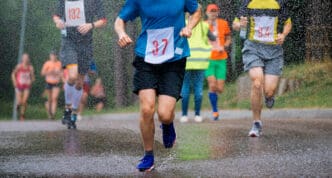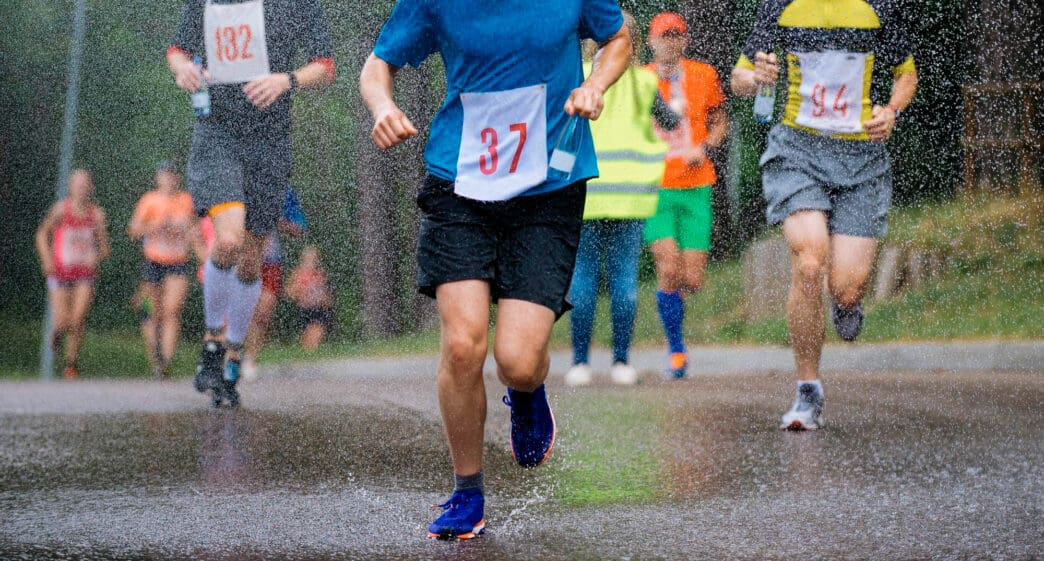A Quick Takeaway
- Optimized sleep is a critical and often-overlooked element, as vital as training and nutrition, for athletes to achieve peak performance and robust recovery in Florida’s demanding multi-day races.
- Athletes must engage in strategic sleep practices across three distinct phases: pre-race “sleep banking” for weeks prior, maximizing limited sleep and strategic napping during the event, and prioritizing uninterrupted rest post-race.
- Given Florida’s pervasive heat and humidity, specific environmental optimizations are crucial, including creating a cool sleep environment, utilizing cool showers, and wearing light sleepwear to combat these challenges during and after races.
The Story Behind the Trend
- Florida’s multi-day endurance races are uniquely challenging due to the pervasive heat and high humidity, which amplify physiological stress and compound fatigue over consecutive days, thus making optimized sleep an often-overlooked yet critical factor for athletes to achieve peak performance and robust recovery.
How to Make It Work for You
- For athletes competing in Florida’s challenging multi-day endurance races, strategic sleep optimization is presented as an often-overlooked yet critical component, equally vital as training and nutrition. The state’s unique heat and humidity amplify physiological stress, making robust recovery paramount, thus requiring athletes to prioritize “sleep banking” pre-race, maximize limited rest opportunities during the event, and ensure ample recovery sleep post-race to achieve peak performance and prevent injury.
The Community View
- Athletes are advised to prioritize pre-race sleep optimization, focusing on “sleep banking” 2-4 weeks prior to the event to build resilience, improve immune function, and prepare for inevitable sleep deprivation.
- During multi-day events, athletes should strategically maximize limited sleep opportunities through power naps and leveraging downtime to aid recovery and maintain cognitive function.
- Post-race, athletes are encouraged to prioritize uninterrupted sleep and continue healthy sleep habits to facilitate comprehensive physical and mental recuperation and solidify gains.
Conquering Florida’s demanding multi-day races, from grueling ultramarathons to challenging adventure events, hinges significantly on a often-overlooked yet critical element: optimized sleep. Athletes seeking to unlock peak performance and ensure robust recovery in the Sunshine State’s unique climate must prioritize strategic sleep practices before, during, and after their events, recognizing that adequate rest is as vital as training and nutrition for enduring the physical and mental rigors of consecutive race days.
The Unique Challenge of Florida Races
Florida’s environment presents a distinct set of challenges for endurance athletes. The pervasive heat and high humidity amplify physiological stress, making every effort more taxing and recovery more crucial. Multi-day formats compound this fatigue, as athletes must perform day after day, often with limited time for complete recuperation, making sleep the ultimate performance enhancer and injury preventative.
The relentless sun and sticky air not only impact performance during the day but can also interfere with the quality of sleep at night. Understanding these environmental factors is the first step in developing effective sleep strategies that specifically address the demands of racing in Florida.
Pre-Race Sleep Optimization: Building Your Sleep Bank
Preparation for a multi-day race extends far beyond physical training and gear checks; it must include a dedicated focus on sleep. Just as you build your aerobic base, you need to build your “sleep bank” in the weeks leading up to the event.
Prioritize Sleep Weeks Before
Consistently aiming for 7-9 hours of quality sleep per night in the 2-4 weeks before your race is paramount. This practice, often referred to as “sleep banking,” helps to offset the inevitable sleep deprivation that often occurs during the event itself. Benefits include improved immune function, enhanced glycogen storage, better hormonal balance, and increased mental resilience, all crucial for multi-day efforts.
Establish a Consistent Sleep Schedule
Your body thrives on routine. Going to bed and waking up at the same time each day, even on weekends, helps to regulate your circadian rhythm, your body’s internal clock. A stable circadian rhythm ensures more efficient and restorative sleep, preparing your body for the stress of race week.
Optimize Your Sleep Environment
Creating an ideal sleep sanctuary at home can train your body for good sleep, even when you’re in less-than-ideal race accommodations. Aim for a room that is dark, quiet, and cool. Blackout curtains, earplugs, and eye masks are simple tools that can make a significant difference.
Given Florida’s heat, ensuring your sleep space is cool is especially important. If you’re staying in a hotel or rental for the race, inquire about air conditioning or consider bringing a portable fan. A cooler body temperature facilitates the onset of sleep and improves its quality.
Mindful Evening Routines
The hours leading up to bedtime are just as important as sleep itself. Avoid stimulating activities such as intense workouts, screen time (phones, tablets, computers, TVs), heavy meals, caffeine, and alcohol in the few hours before bed. Instead, engage in relaxing activities like reading a physical book, light stretching, or meditation to signal to your body that it’s time to wind down.
Sleep Strategies During Multi-Day Events
The reality of multi-day races often means sleep will be compromised. The goal isn’t necessarily perfect sleep, but rather maximizing the quality and quantity of sleep opportunities available.
Maximizing Limited Sleep Opportunities
Accept that you may not get your ideal 7-9 hours each night. Instead, focus on making the most of the sleep you do get. Prioritize falling asleep quickly and staying asleep for as long as possible, even if it’s only a few hours. Quality sleep, even if short, is more beneficial than tossing and turning.
Strategic Napping
Napping can be a powerful tool for recovery and performance during multi-day events. Short “power naps” of 20-30 minutes can significantly improve alertness, cognitive function, and mood without causing grogginess. If your schedule allows for a longer break, a 90-minute nap can provide a full sleep cycle, offering deeper restorative benefits.
Aim to nap earlier in the day if possible to avoid disrupting your nighttime sleep. Find a quiet, dark spot, even if it’s in your car or a designated rest area, and make use of your eye mask and earplugs.
Leveraging Race Support & Downtime
Use any downtime between stages or at aid stations strategically. Focus on immediate post-stage nutrition and hydration, but then shift your attention to rest. Prioritize sleep over social activities, extensive gear prep, or reviewing race data if you are feeling fatigued. Delegate tasks if possible to maximize your rest periods.
Combatting Florida’s Heat at Night
The persistent heat and humidity can make sleeping challenging, even indoors. Take a cool shower or bath before bed to lower your core body temperature. Wear light, breathable sleepwear made from moisture-wicking fabrics. Ensure adequate hydration throughout the day, but avoid excessive fluid intake right before bed to prevent nighttime bathroom trips.
If you have access to a fan or air conditioning, utilize it to keep your sleeping environment as cool as possible. Elevating your feet slightly can also help reduce swelling that may have accumulated during the day’s efforts, contributing to greater comfort and sleep quality.
Post-Race Recovery: Solidifying Gains
Once the final stage is complete, your recovery journey begins, and sleep remains a cornerstone of this process. The days following a multi-day race are crucial for physical and mental recuperation.
Prioritize Uninterrupted Sleep
Allow yourself extra sleep in the days and even weeks following the race. Your body has endured significant stress and needs ample time to repair muscle tissue, restore energy stores, rebalance hormones, and bolster the immune system. Resist the urge to immediately return to a demanding schedule; your body will thank you for the extended rest.
Continue Healthy Sleep Habits
Do not abandon the consistent sleep schedule you established pre-race. Maintaining good sleep hygiene, including a regular bedtime and wake-up time, will aid in a more efficient and complete recovery. Avoid falling into habits of late nights or irregular sleep patterns, which can prolong the recovery period.
Nutrition and Hydration Post-Race
Support your sleep with nutrient-dense foods that aid recovery. Foods rich in magnesium (leafy greens, nuts), tryptophan (turkey, dairy), and complex carbohydrates can promote relaxation and sleep. Continue to replenish electrolytes and fluids, as proper hydration also plays a role in sleep quality and overall recovery.
Mastering multi-day races in Florida demands more than just physical prowess; it requires a sophisticated approach to recovery, with sleep at its core. By meticulously planning your sleep pre-race, strategically managing it during the event, and prioritizing it in the days that follow, you empower your body and mind to not only endure but truly excel in the Sunshine State’s challenging endurance landscape.







